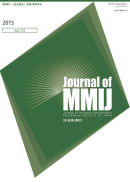巻号一覧

特集号
131 巻, 7 号
選択された号の論文の4件中1~4を表示しています
- |<
- <
- 1
- >
- >|
論文
-
–第2 報:接触時間と反応速度を考慮した接着力モデルと坑井内流動解析清水 賀之, 加藤 忠久, 福田 和志, 清野 文雄, 成田 英夫2015 年 131 巻 7 号 p. 449-458
発行日: 2015/07/01
公開日: 2015/07/01
ジャーナル フリーThis paper describes a new algorithm implemented on the scheme, which was developed by authors' previous research in the Discrete Element Method with the Coarse Grid Thermal-Fluid Coupling Scheme to represent formation and decomposition of methane hydrate particles for the flow assurance during operation of the production system. The algorithm represents transient bonding process between methane hydrate particles or methane gas bubbles surrounded by methane hydrate shell. This process involves a phase-change between methane hydrate and methane gas/water, which is related to contacting time and the rate. Several simulations were conducted to validate the new algorithms. Also a simulation, which mimics flow of methane hydrate particles or methane gas bubbles surrounded by methane hydrate shell in the vertical duct, was conducted to examine bonding process under subcooling condition. It was verified that the thermal energy between particles and continuous phase are exchanged correctly under a phase-change with bonding process. Also the scheme was able to represent a phase-change from methane hydrate into methane gas/water by changing the phase- change rate and the Pressure-Temperature diagram. Further, it was found that condition of particle agglomeration during flowing in the vertical duct depends on the strength of the bond. As a whole, the improved scheme enables one to examine the flow assurance without blockage by methane hydrate in the production system if parameters are specified correctly in simulations.抄録全体を表示PDF形式でダウンロード (4531K) -
赤塚 真依子, 玉村 修司, 五十嵐 敏文, 金子 勝比古2015 年 131 巻 7 号 p. 459-464
発行日: 2015/07/01
公開日: 2015/07/01
ジャーナル フリーAs one of the application of coal resources, domestic and overseas industries have been focusing on the recovery of methane from coal resources by methanogens using low-molecular weight acids or hydrogen that are converted from the organic matter in coal. For this application, it is essential to enhance the extraction of organic matter from low-rank coal (lignite) and maximize the conversion rate to consumable substrates for methanogen. In this study, we focused on the effects of chelating and reducing agents on the extraction of organics and metals from low-rank coal. Citric acid (chelating and reducing agent) and EDTA (chelating agent) were chosen as typical solvents. In the presence of citric acid, the Fe (II) concentration was correlated with the concentration of extracted organics as well as the total Fe. By contrast, the Fe (II) concentration was constantly at a low level for each EDTA concentration and pH. The absorbance (280 nm) of both solutions was almost the same when the total Fe concentrations were similar, regardless of the concentrations of Fe (II) , Al, Mg and Ca. These results indicated that organics from lignite were extracted with the leaching of Fe (III) and that the effects of reduction on the extraction of organics were insignificant. Excitation emission matrix spectra analysis suggested that humic acid was the main component of the extracted organics from lignite. The amount of acetic acid and formic acid released from 1g of lignite was calculated to be in the range 0.14 to 0.25 mg, and it was observed no correlation of the released amount with the citric acid /EDTA concentrations. Further research to obtain substrates such as low-molecularweight acids from the extracted organic materials is necessary for methane production using methanogens.抄録全体を表示PDF形式でダウンロード (1707K) -
桃木 大地, 余 茜倩, 平島 剛, 笹木 圭子2015 年 131 巻 7 号 p. 465-469
発行日: 2015/07/01
公開日: 2015/07/01
ジャーナル フリーAtomic hole type of bio-templated lithium ion sieve was synthesized to supply for adsorption of Li+ in simulated geothermal waters at 70℃. Sorption data was fit to linearlized Langmuir isotherm and the maximum sorption density was not largely influenced by coexisting ions including larger amounts of Na+ in simulated geothermal waters. The sorption kinetic data was fit to the first order rate, and the kinetic constant was not also influenced by coexisting ions as mentioned above. Temperature elevation accelerated the sorption rate. The activation energy obtained from Arrhenius plots was estimated 4.34 ~ 4.67 kcal/mol, implying that the adsorption is controlled by interparticle diffusion. The enthalpy change was evaluated 2.3 kcal/mol, which is larger than the previously reported value with the atomic hole type of ion sieve. It might be due to the unique morphologies of the present bio-templated ion sieve.抄録全体を表示PDF形式でダウンロード (1761K) -
平郡 伸一, 浅野 聡, 井手上 敦2015 年 131 巻 7 号 p. 470-475
発行日: 2015/07/01
公開日: 2015/07/01
ジャーナル フリーDue to the continual depletion of resources and higher impurity levels found in copper concentrates worldwide, hydrometallurgical processes are being developed worldwide as a more suitable smelting process for high impurity concentrates. There are many cases in recent years where‘ medium temperature' leaching process is preferred because of the costs associated with the use of neutralizing reagents for the processing of the sulfuric acid by-product. By studying the properties of sulfur and iron during‘ medium temperature' leaching, it was observed that Fe (III) was effective for improving copper leaching by acting as an oxidation catalyst. Sulfur contained in chalcopyrite was melted and depressed the leaching reaction by covering remaining chalcopyrite. This effect was reduced with the formation of jarosite by the incorporation of sulfur and iron. During the initial stages of the reaction, sulfuric acid consumption preceded sulfuric acid formation as a by-product, since in the catalyst effects of Fe (III) promote leaching reaction of acid formation.抄録全体を表示PDF形式でダウンロード (1158K)
- |<
- <
- 1
- >
- >|